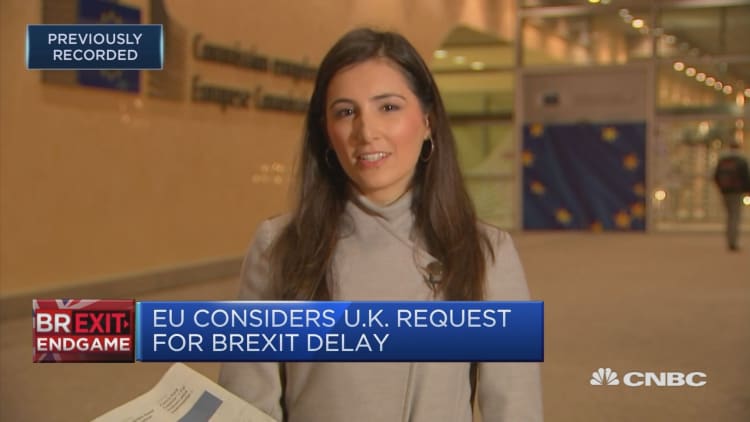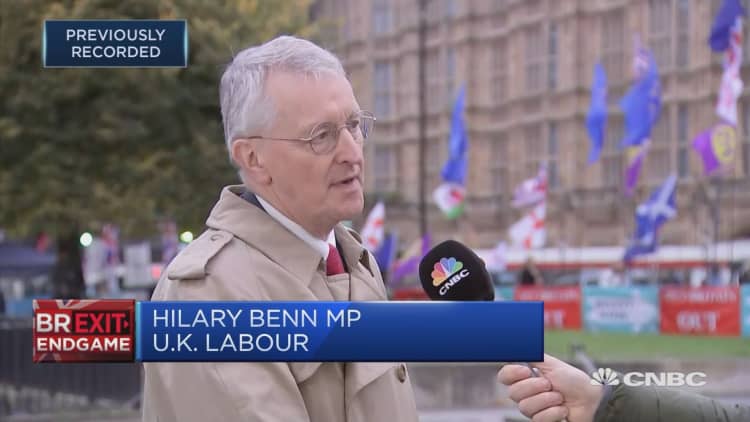
The British pound erased all of its overnight losses against the dollar on Monday morning, with renewed optimism that U.K. Prime Minister Boris Johnson could soon pass his Brexit deal through Parliament.
The currency initially slid 0.6% as markets opened in Asia trading early Monday, but by 9:30 a.m. London time it had pushed into positive territory — above $1.30 — and touched a five-and-a-half month high, according to Reuters data.
The move follows a complicated day for Brexit on Saturday. Johnson was thwarted by a cross-party group of politicians who voted to postpone the "meaningful vote" on his new divorce deal and force him to ask Brussels for an extension to the current Oct. 31 Brexit deadline.
Johnson grudgingly asked for an extension to the deadline late on Saturday night, but EU leaders don't necessarily have to accept it. This week will now see the government present the full Withdrawal Agreement Bill and slowly try to pass it through both chambers — the House of Commons and the House of Lords. A crunch, decisive vote by lawmakers would likely come later in the week.

Despite Johnson losing the vote on Saturday, experts are still positive on the direction of Brexit. Analysts at Deutsche Bank said in a research note that "the outlook for a Brexit resolution remains constructive," explaining that the makeup of the voting on Saturday actually meant that Johnson could receive enough backing for his deal at a later date.
The bank also said it would "retain our constructive outlook on the U.K., and long sterling and short U.K. real yield recommendations."
Goldman Sachs, meanwhile, lowered the probability of a no-deal Brexit to 5% from 10% on Sunday, according to Reuters, maintaining its view that the country will leave the bloc on Oct. 31.
On Monday, Citi analysts said their base case is now that the U.K. will leave the EU in an orderly fashion "with a transition phase until December 2020, 2021 or 2022 — sooner or later."
"After Saturday's vote, chances of no-deal are now even lower," they said in a research note.
Sterling had traded near 1.50 versus the dollar before the referendum back in 2016, but plummeted to around $1.29 as the result became clear. It then spent the following months pushing even lower and has broken below $1.20 on a few occasions.



